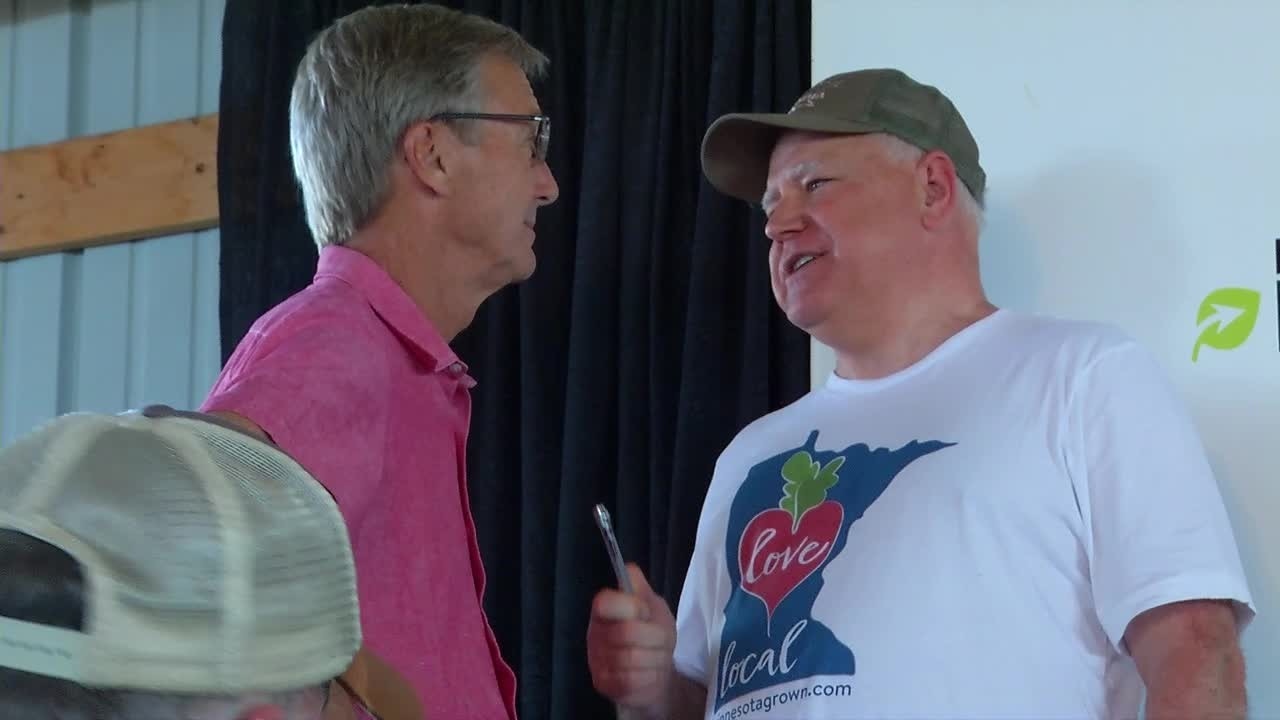2022 Minnesota gubernatorial race to feature fewest number of debates in decades
[anvplayer video=”5135974″ station=”998122″]
Minnesota Gov. Tim Walz says he will participate in a total of three debates during the general election campaign, one of which has already happened.
The two additional debates he agreed to in October mean the 2022 campaign will feature the fewest debates in a Minnesota governor’s race since at least 1998. The last one will take less than two weeks before Election Day.
“A lot of voters don’t tune in until very close to election day, and so late debates could be very important in giving them essential information, but candidates have very different calculations about debates than voters do,” says Carleton College political analyst Steven Schier.
Walz agreed to a debate on Oct. 18 hosted by a group of television stations in Mankato, Rochester, Duluth and Fargo. As of now, that debate will not be carried live in the Twin Cities, where the majority of Minnesota voters live.
The second debate will be hosted by Minnesota Public Radio on Oct. 28, 11 days before Election Day. That means 75 days will have passed between the Farmfest debate in August and the next debate on Oct. 18. It also comes 26 days after thousands of Minnesotans will have cast ballots in early voting.

Gov. Tim Walz, right, talks with gubernatorial candidate Dr. Scott Jensen before they take the debate stage Aug. 3, 2022, at Farmfest in Morgan, Minnesota. (KSTP)
In a statement released over the weekend, the Walz campaign said, “The additional debates will bring the total number of debates for the campaign to three, including FarmFest. This is the same number of debates that were held in the U.S. Senate elections won by Amy Klobuchar in 2018 and Tina Smith in both 2018 and 2020.”
However, according to our research at 5 EYEWITNESS NEWS, three debates will be the fewest in a governor’s race since at least 1998. That year Reform Party candidate Jesse Ventura won a three-way race after debating his opponents at least four times. In 2002, there were seven debates, and 2006 featured five debates. The 2010 race for an open governor’s office featured at least 21 debates. After Democrat Mark Dayton won that race, he scaled back to four debates in 2014. In 2018, again with no incumbent, Walz debated Republican Jeff Johnson six times.
All of those races featured at least one statewide televised debate and often two. Unless something changes, this year there will be none, despite Walz telling 5 EYEWITNESS NEWS in an interview last month he wanted a debate on statewide television with as wide an audience as possible.
“My positions are more popular,” he said of his race with Jensen. “I’ve done this for decades. I’m glad to do it. But I’m also very concerned. I’m not going to give him a platform to talk about Ivermectin and vaccine lies. That we need to have moderators there and we’ll set that up…and I want a broad audience. I want the TV’s across the state to be able to see it…”
So far he has not agreed to such a debate.
“The governor wants the messaging about him to come from his campaign and the way to do that is to not debate extensively,” Schier says.
KSTP-TV invited the leading candidates in the governor’s race to take part in a live “Debate Night in Minnesota” on Sunday, Oct. 23. Jensen agreed to appear. On Monday the Walz campaign told 5 EYEWITNESS NEWS, “We will not be making additions to the debate schedule.” Jensen will still be featured in a live interview, but the invitation to the Walz campaign remains open.
Walz has also declined to participate in a live statewide debate on TPT’s “Almanac” program. A producer at TPT says this will be the first time since 1998 they will not host a debate on the final Friday before the election since 1998.